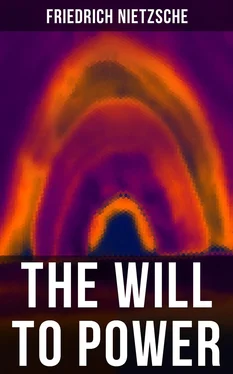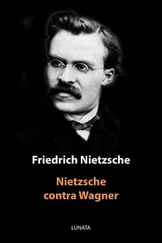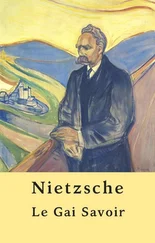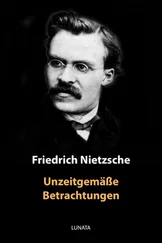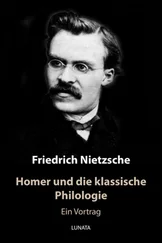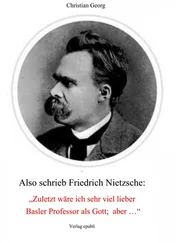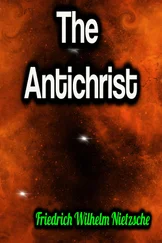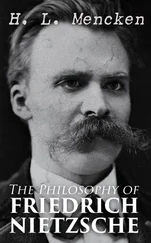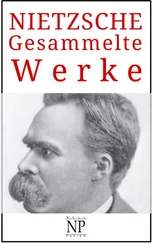This party, which stands for freedom, understands that the abandonment of antagonism in thought and deed is a condition of distinction and preservation. Here lies the psychological difficulty which has stood in the way of Christianity being understood: the force which created it, urges to a struggle against itself.
Only as a party standing for peace and innocence can this insurrectionary movement hope to be successful: it must conquer by means of excessive mildness, sweetness, softness, and its instincts are aware of this. The feat was to deny and condemn the force, of which man is the expression, and to press the reverse of that force continually to the fore, by word and deed.
180.
The pretence of youthfulness. —It is a mistake to imagine that, with Christianity, an ingenuous and youthful people rose against an old culture; the story goes that it was out of the lowest levels of society, where Christianity flourished and shot its roots, that the more profound source of life gushed forth afresh: but nothing can be understood of the psychology of Christianity, if it be supposed that it was the expression of revived youth among a people, or of the resuscitated strength of a race. It is rather a typical form of decadence, of moral-softening and of hysteria, amid a general hotch-potch of races and people that had lost all aims and had grown weary and sick. The wonderful company which gathered round this master-seducer of the populace, would not be at all out of place in a Russian novel: all the diseases of the nerves seem to give one another a rendezvous in this crowd—the absence of a known duty, the feeling that everything is nearing its end, that nothing is any longer worth while, and that contentment lies in dolce far niente .
The power and certainty of the future in the Jew's instinct, its monstrous will for life and for power, lies in its ruling classes; the people who upheld primitive Christianity are best distinguished by this exhausted condition of their instincts. On the one hand, they are sick of everything; on the other, they are content with each other, with themselves and for themselves.
181.
Christianity regarded as emancipated Judaism (just as a nobility which is both racial and indigenous ultimately emancipates itself from these conditions, and goes in search of kindred elements....).
(1) As a Church (community) on the territory of the State, as an unpolitical institution.
(2) As life, breeding, practice, art of living.
(3) As a religion of sin (sin committed against God, being the only recognised kind, and the only cause of all suffering), with a universal cure for it. There is no sin save against God; what is done against men, man shall not sit in judgment upon, nor call to account, except in the name of God. At the same time, all commandments (love): everything is associated with God, and all acts are performed according to God's will. Beneath this arrangement there lies exceptional intelligence (a very narrow life, such as that led by the Esquimaux, can only be endured by most peaceful and indulgent people: the Judæo-Christian dogma turns against sin in favour of the "sinner").
182.
The Jewish priesthood understood how to present everything it claimed to be right as a divine precept, as an act of obedience to God, and also to introduce all those things which conduced to preserve Israel and were the conditions of its existence (for instance: the large number of " works ": circumcision and the cult of sacrifices, as the very pivot of the national conscience), not as Nature, but as God.
This process continued; within the very heart of Judaism, where the need of these "works" was not felt (that is to say, as a means of keeping a race distinct), a priestly sort of man was pictured, whose bearing towards the aristocracy was like that of "noble nature"; a sacerdotalism of the soul, which now, in order to throw its opposite into strong relief, attaches value, not to the "dutiful acts" themselves, but to the sentiment....
At bottom, the problem was once again, how to make a certain kind of soul prevail : it was also a popular insurrection in the midst of a priestly people —a pietistic movement coming from below (sinners, publicans, women, and children). Jesus of Nazareth was the symbol of their sect. And again, in order to believe in themselves, they were in need of a theological transfiguration : they require nothing less than "the Son of God" in order to create a belief for themselves. And just as the priesthood had falsified the whole history of Israel, another attempt was made, here, to alter and falsify the whole history of mankind in such a way as to make Christianity seem like the most important event it contained. This movement could have originated only upon the soil of Judaism, the main feature of which was the confounding of guilt with sorrow and the reduction of all sin to sin against God. Of all this, Christianity is the second degree of power.
183.
The symbolism of Christianity is based upon that of Judaism, which had already transfigured all reality (history, Nature) into a holy and artificial unreality—which refused to recognise real history, and which showed no more interest in a natural course of things.
184.
The Jews made the attempt to prevail, after two of their castes—the warrior and the agricultural castes, had disappeared from their midst.
In this sense they are the "castrated people": they have their priests and then—their Chandala....
How easily a disturbance occurs among them—an insurrection of their Chandala. This was the origin of Christianity.
Owing to the fact that they had no knowledge of warriors except as their masters, they introduced enmity towards the nobles, the men of honour, pride, and power, and the ruling classes, into their religion: they are pessimists from indignation....
Thus they created a very important and novel position: the priests in the van of the Chandala—against the noble classes....
Christianity was the logical conclusion of this movement: even in the Jewish priesthood, it still scented the existence of the caste, of the privileged and noble minority— it therefore did away with priests.
Christ is the unit of the Chandala who removes the priest ... the Chandala who redeems himself....
That is why the French Revolution is the lineal descendant and the continuator of Christianity— it is characterised by an instinct of hate towards castes, nobles, and the last privileges.
185.
The " Christian Ideal " put on the stage with Jewish astuteness—these are the fundamental psychological forces of its "nature":—
Revolt against the ruling spiritual powers;
The attempt to make those virtues which facilitate the happiness of the lowly, a standard of all values—in fact, to call God that which is no more than the self-preservative instinct of that class of man possessed of least vitality;
Obedience and absolute abstention from war and resistance, justified by this ideal;
The love of one another as a result of the love of God.
The trick : The denial of all natural mobilia, and their transference to the spiritual world beyond ... the exploitation of virtue and its veneration for wholly interested motives, gradual denial of virtue in everything that is not Christian.
186.
The profound contempt with which the Christian was treated by the noble people of antiquity, is of the same order as the present instinctive aversion to Jews: it is the hatred which free and self-respecting classes feel towards those who wish to creep in secretly, and who combine an awkward bearing with foolish self-sufficiency.
Читать дальше
